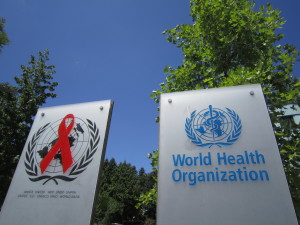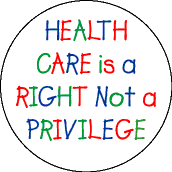Guess who got invited to WHO? No, really. The World Health Organization (WHO) invited yours truly to its First Global Experts’ Consultation in service of building a WHO framework for patient and family engagement.
Guess who got invited to WHO? No, really. The World Health Organization (WHO) invited yours truly to its First Global Experts’ Consultation in service of building a WHO framework for patient and family engagement. This is all due to my part in the ongoing anvil chorus that is the new Patient & Family Engagement Roadmap, developed by a group of dedicated folks from all parts of the healthcare compass over the last couple years, with funding from the Gordon & Betty Moore Foundation.  I spent just over two days in Geneva, most of the time head-down in discussions about how the global health system – a patchwork of services delivered by an even patchwork-ier cadre of healthcare delivery systems – can better serve the needs of the people/patients who seek medical care and health information from them. This post will not attempt to report everything I saw/heard/thought/felt in that jam-packed 16 hours of ideas and outlooks. What I’ll share is my perspective on the challenges, the opportunities, the pitfalls, and the hopes that – in my view, at least – emerged during that lightning round of global spitballing.
I spent just over two days in Geneva, most of the time head-down in discussions about how the global health system – a patchwork of services delivered by an even patchwork-ier cadre of healthcare delivery systems – can better serve the needs of the people/patients who seek medical care and health information from them. This post will not attempt to report everything I saw/heard/thought/felt in that jam-packed 16 hours of ideas and outlooks. What I’ll share is my perspective on the challenges, the opportunities, the pitfalls, and the hopes that – in my view, at least – emerged during that lightning round of global spitballing.
Challenges
There’s an old joke that asks, “What’s an elephant?” The answer: “A mouse designed by a government committee.” That’s the risk, and challenge, to any attempt to build a definable set of standards for a human effort. Education, transportation, trade, infrastructure, communication, medicine – all require some sort of standardization to make them useful to more than one or two people huddled over a campfire. A study of history will show that as much as we humans are great idea generators, trying to get the rest of the tribe to adopt our new idea isn’t easy. The father of quantum mechanics, Max Planck, said it best: “A new scientific truth does not triumph by convincing its opponents and making them see the light, but rather because its opponents eventually die, and a new generation grows up that is familiar with it.” To paraphrase: Science advances one funeral at a time. Medicine, which has been practiced for millennia by magical beings initiated into secrets of “science” that could not be understood by the common human, has only become understandable to the average Joe and/or Jane as public education has become available across the globe. Public education still isn’t available everywhere, and the character and content of that education can be complicated by cultural views of science, of the education of women, and other factors that impact access to information. So the challenges I see here are two-fold:
- Calcified thinking in power structures, both scientific and political.
- Lack of science education and information access in the wider population.
That’s true in developed nations – just witness the “science denial” movement in the US that stubbornly insists on not being confused with facts on issues like climate change or human reproduction – as well as in emerging nations that are still building basic infrastructure.
Opportunities
Well, let’s start with who was in the WHO-room. Clinicians, policy wonks, and healthcare advocates from Uganda, India, Canada, Ecuador, Pakistan, Saudi Arabia, Belgium, Ireland, the UK, the US, Switzerland, the Netherlands, Thailand, Australia, China, and Malaysia, along with a wide array of WHO folks from their Geneva HQ as well as a robust representation of their Western Pacific Region Office (WPRO). WHO’s Envoy for Patient Safety Sir Liam Donaldson (that link is to his Twitter feed, which I highly recommend) was actively engaged in every part of the discussion over the two days, and I was deeply encouraged by his clear insights into the issues we’re all wrestling with in transforming the global healthcare system.
The story that had the biggest impact on me was the one told by Dr. Jonás Gonseth, head of Hospital de Especialidades in Guayaquil, Ecuador. His experience was one that I think spotlights the core problem: lack of trust in the care delivery system by the people that system purportedly serves. I wish I had a link to the video he shared, which clearly showed the lack of trust that the Ecuadorian people had in their healthcare system. Demonstrations outside the hospital, intercut with a number of clips that included a patient on a gurney being rolled toward the hospital door who got dumped on his head when the gurney tipped over as the dweeb hauling it couldn’t figure out how to get it over a curb … you get the picture.
Dr. Gonseth was asked (begged?) by the President of Ecuador to tackle the mess that was the Guayaquil Hospital de Especialidades. In just over two years, he’s worked what could be called miraculous change in quality improvement and patient safety, largely by advocating for community social participation in that work, and for patient empowerment. He’s transformed the culture inside the hospital, and the level of community trust in the care delivered by that hospital. The money quote: “It was such a disaster we had nothing to lose [by involving patients].” What that story told me is that grassroots frustration with healthcare systems is a global issue, one that was made clear by all the from-the-ground presentations over the two days. That leads me to the opportunities here, which are shared by both developed and emerging countries:
- “Start where you are. Use what you have. Do what you can.” That quote from Arthur Ashe makes it clear that any – ALL – of us can work on healthcare system transformation. So let’s get this party started.
- Transformation does not happen from the top down. There does need to be a leader, but a successful leader will more likely come from outside the system needing the transformation.
That calcified-thinking challenge I mentioned above presents a solid opportunity to those of us on the ground, working to transform the system. Designing from the outside in is a software development approach that focuses on satisfying the needs of the end user. Healthcare systems *must* look at system transformation from that perspective: start with the people you’re serving, not with the folks running the hospital/professional society/medical association. The people being served – THE PATIENTS – are the end-user stakeholders.
Pitfalls
There’s much inertia confronting transformation of a massive human system like healthcare delivery. It’s exhausting if you look at it as a “system,” but since it is a system, any action has to be considered in the context of what sort of dominoes – or dynamite – that action might trigger. Plus, attempts at transforming bureaucratic process lead to what I’m going to call Donaldson’s Dictum (in honor of Sir Liam Donaldson, who said it): “Ability to simplify bureaucratic complexity draws heavy fire from the bureaucrats who create that complexity.” And then there’s the elephant in every room: the money. Whatever the economic basis is for the healthcare delivery system in question, getting quality improvement and patient safety into the budget is a daunting task. Dr. Jonás Gonseth effected his hospital transformation in Ecuador without any increase in budget, but I wonder how much heavy lifting he had to do to sell his ideas to the bureaucrats? Since he’d been asked by the country’s President to take charge and fix a major mess, that might have gotten him through the first week. But transformation at this level takes months and years, so figuring out where the money’s gon’ come from is critically important. So, in short:
- Is there a budget for real system transformation?
- Is there enough political will to allow that transformation to occur?
Hopes
 When it comes to complex systems thinking, I’m a simple creature. I believe that the more complex the system you’re looking at gets, the more you have to go right down to the molecular level to regain perspective. If you’re trying to end a disease like polio, you have to start where Jonas Salk did: with the virus itself. If you’re trying to create a healthcare system that delivers human health, you have to start with … the people who are seeking health care. June Boulger, Ireland’s National Lead for Patient and Public Involvement in Healthcare, said the overarching message of her work is “people helping people.” When I took the mic to make a comment on Monday afternoon, I told everyone in the room to run right back to the ground level whenever they got too “system”-y in their thinking or their approach to quality improvement, delivery improvement, and/or patient safety.
When it comes to complex systems thinking, I’m a simple creature. I believe that the more complex the system you’re looking at gets, the more you have to go right down to the molecular level to regain perspective. If you’re trying to end a disease like polio, you have to start where Jonas Salk did: with the virus itself. If you’re trying to create a healthcare system that delivers human health, you have to start with … the people who are seeking health care. June Boulger, Ireland’s National Lead for Patient and Public Involvement in Healthcare, said the overarching message of her work is “people helping people.” When I took the mic to make a comment on Monday afternoon, I told everyone in the room to run right back to the ground level whenever they got too “system”-y in their thinking or their approach to quality improvement, delivery improvement, and/or patient safety.
Design from the outside in, begin with the end in mind, “start where you are, use what you have, do what you can,” lather, rinse, repeat.
That’s my entire philosophy of healthcare system transformation in one sentence. Let’s get this party started.







